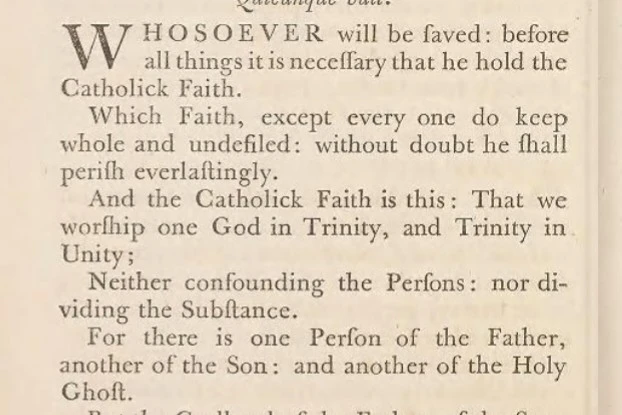The Oneness of God

Question 4 of the Shorter Catechism considered God’s divine nature, his whatness, and question 5 continues that discussion.
Q. 5. Are there more Gods than one?
A. There is but one only, the living and true God.
The key text for the oneness of God is Deuteronomy 6:4.
Hear, O Israel: The LORD our God, the LORD is one.
This verse is often referred to as the “Shema,” which simply means “hear.” Under the Old Covenant, and even in Judaism today, this verse has been cited as a kind of creed, not unlike our Christian Creeds. It is immediately followed by the greatest commandment, “You shall love the LORD your God with all your heart and with all your soul and with all your might.” If there is a centerpiece, a starting point, of theology, this is it. Proverbs tells us the fear of the Lord is the beginning of wisdom, and this is the first thing we ought to know about God.
What’s interesting is that this idea of the oneness of God wasn’t unheard of at the time of Moses. In most other cultures, there was usually one god who was considered the highest god in the pagan pantheons. Think of something like Zeus in the Greek pantheon. To refer to a god as “one” was to signify his unique and special role as the king of the gods. But Deuteronomy leaves no room for such an idea because, in the verses, that immediately follow, Israel is commanded to serve no other gods at all. This is not only a claim to a special role; it’s a claim to exclusivity.
That’s why the catechism goes on to describe this one God as “the living and true God.” The Lord, unlike the pagan gods, does not depend on any other being for his life. Rather, “As the Father has life in himself, so he has granted the Son also to have life in himself” (John 5:26). The other gods, whether spiritual beings dependent on god or imaginary beings dependent on man, are capable of death. But to live is part of the very nature of God. A god who can die is no god at all. Therefore, the Lord is the only true God. Any being that can suffer death is not God, but a liar. Any being that depends on another for its life is not God, but a falsehood. As Jeremiah says, “Can man make for himself gods? Such are not gods!” (Jeremiah 16:20).
This, of course, makes the cross a radical scandal because, as Christians, we believe that God did die. That’s the core of the gospel, that though Christ was in the form of God, he did not count equality with God a thing to be grasped. Instead, God the Son took on human form for the purpose of dying. Death was necessary for atonement, but since God can’t die, Christ had to step down into creation to make it happen. This is an incredibly difficult doctrine, and its difficulty led to all sorts of heresy in the early church. Most notably, Arianism denied that Jesus was God at all. But when we understand who Jesus is (and we’ll get a clearer picture of that as we work through the catechism), we are able to see the radical love of God on display for our salvation.
Your friend in Christ,
Reid
